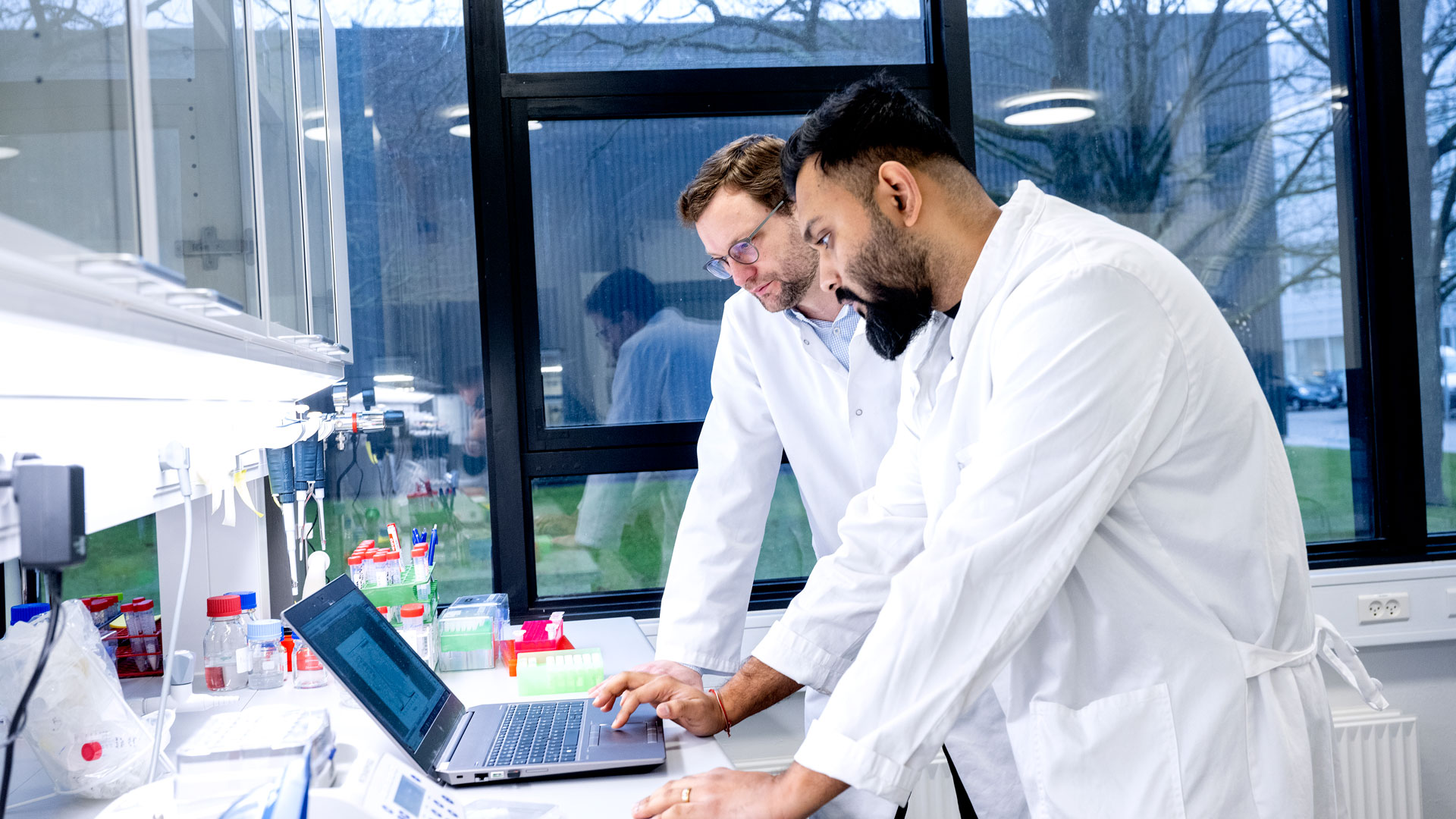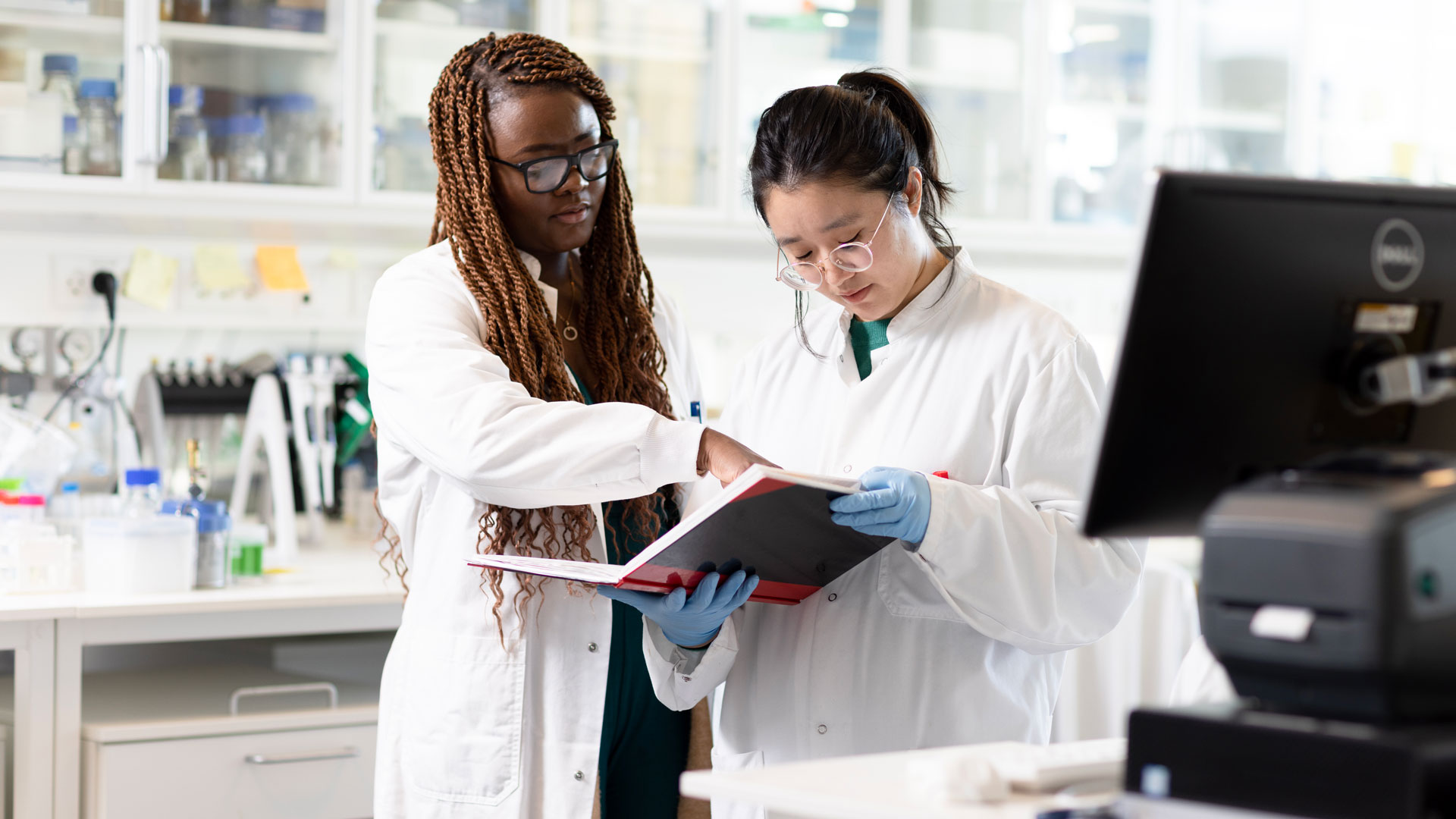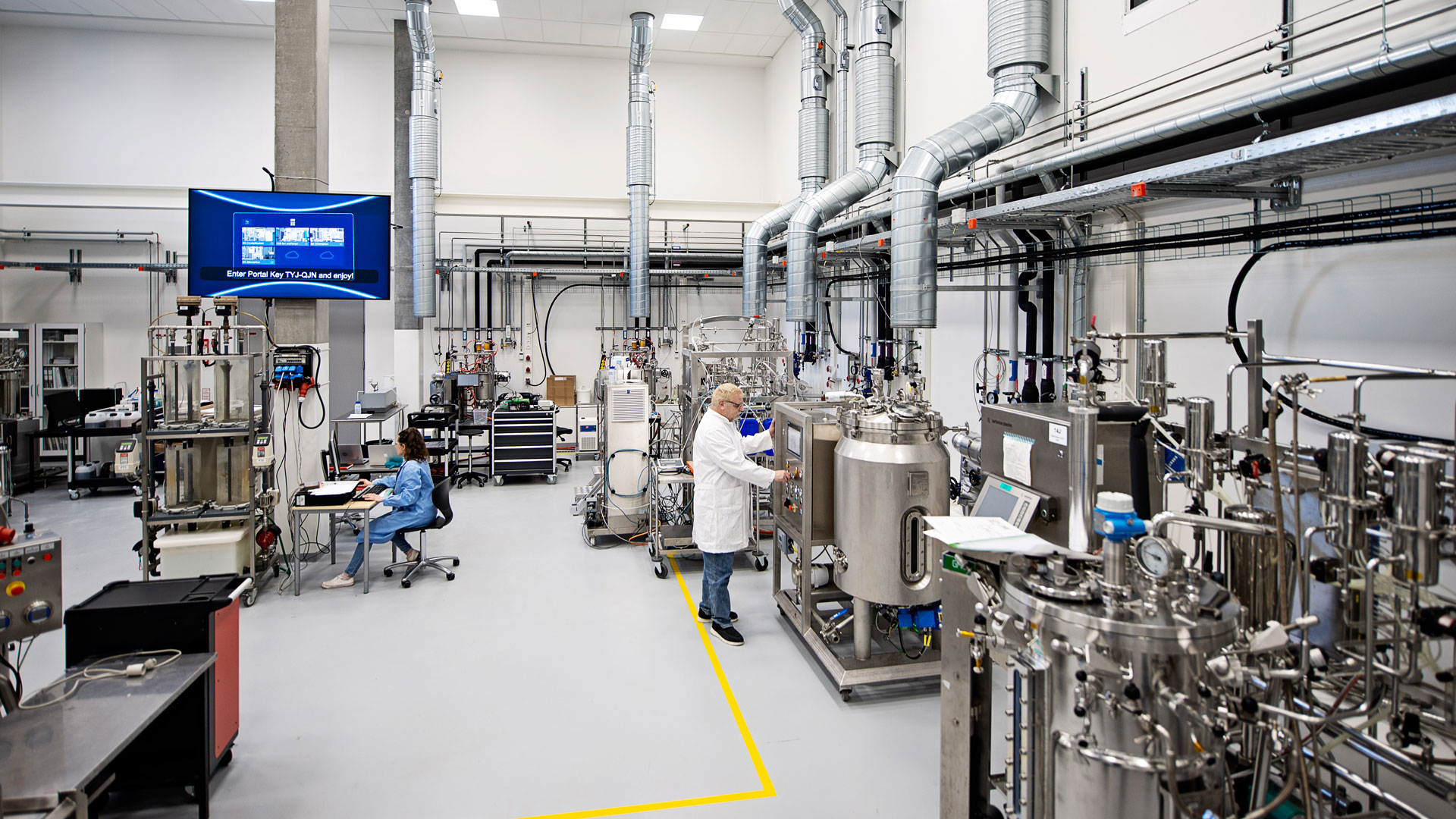Educating highly specialized engineers
Having a university that is a world leader in biotechnology ‘in the backyard’ also benefits companies like Novozymes in the close collaboration about and with the students, Claus Crone Fuglsang points out.
“We learn something from them, they learn something from us, and we can recruit talented graduates. But the most important thing is that we become part of each other's network, and this is extremely valuable as a strong network practically acts as an accelerator for further collaboration,” says Claus Crone Fuglsang.
In addition to bachelor's and master's degree programmes in biotechnology, DTU also offers programmes where you can specialize in the production of biopharmaceutical medicines in collaboration with North Carolina State University in the USA, or you can choose a programme in precision fermentation, which includes both master's degree students, PhD students, and the continuing education of industry employees.
In 2023, for the first time, DTU will also offer the new four-year MSc programme Biomanufacturing based in Kalundborg, Denmark, home of Scandinavia's largest bioindustrial cluster. Here, the students will collaborate with the cluster's companies, which include Novo Nordisk, Novozymes, Saint-Gobain Gyproc, Chr. Hansen, and many others. The goal is to meet industry’s increasing need for highly qualified engineers who can drive the complicated processes involved in bio-based production.
DTU has unique facilities
DTU's third place in the ranking is also made possible by the university's unique facilities. In addition to modern and advanced laboratories for, e.g., genetic modification of microorganisms (GMMO) and high-tech tools such as CRISPR, the University also has robots and supercomputers for generating and processing the huge data sets that is increasingly produced from biotechnological research.
Whether the goal is to have microorganisms producing chemicals, green fuels, medicines, novel foods, or capture CO2, no biotechnological solution can be used if it does not graduate from the laboratory. Because of this, they must be designed with upscaling in mind, so that they can be used for production in a factory one day.
DTU holds strong research environments with highly specialized competences and facilities for this crucial upscaling, including the Pilot Plant at DTU Chemical Engineering at Lyngby Campus. The Pilot Plant houses a total of eight large test facilities with associated laboratories and workshops, and there are more than 30 different large-scale experimental installations representing almost all technologies, from the heavier chemical industry to the more delicate biochemical and pharmaceutical industries.


